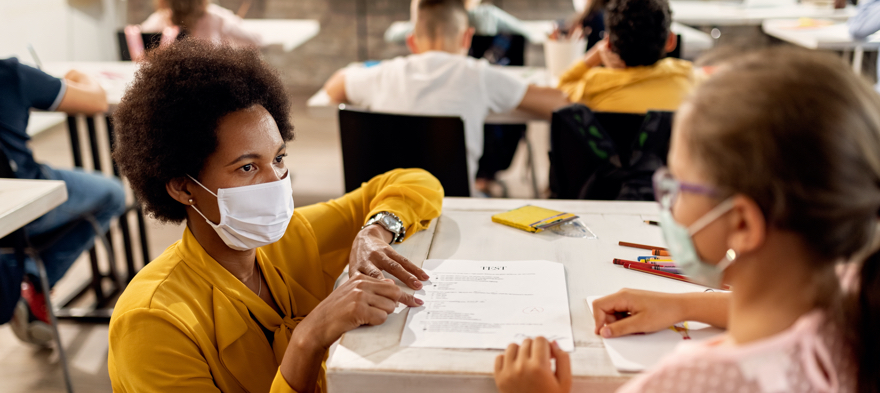
There are some things we understand much better today than we did four months ago. Leading school districts and schools of all grade levels during the COVID-19 pandemic has become the greatest challenge leaders have ever faced. It’s important that leaders are equipped and supported as we continue to pivot and transition as we plan for the 2020-21 school year.
Here are three key questions we encourage educators to consider as they prepare for the upcoming school year.
The challenges of leading schools while also navigating a pandemic at the same time as millions of people across the world protest social injustices makes leading even more challenging. The responsibilities of leaders in schools, colleges, universities and various communities continue to grow.
Despite all this, good leaders will rise to the challenge. [pullquote]We must truly think differently about the work before us as we provide the social, emotional, and academic wellness our students deserve.[/pullquote] There has never been a more opportune time to reform education than now. There is no better time to re-imagine our schools and the communities where they reside than now.
To help you navigate this challenge, here are our a few strategies to consider:
True educational and community reform will not be successful unless we include our students in the process as their involvement will foster sustainability, accountability, and much-needed healing. Including our students in the process of establishing a “new normal” will also help create a more inclusive community as we create culturally sensitive and responsive schools that hiring empathetic staff who provide equitable learning experiences for all students.
To help you navigate this challenge, here are a few strategies to consider:
The reality is many leaders are exhausted. [pullquote position="right"]The extraordinary effort, creativity, and compassion to run schools virtually without any prior notice has taken a toll on all of us.[/pullquote] In addition to changes in the way we deliver academics, leaders must now process and implement a plan to keep 5-year-olds six feet apart on school busses, in their classrooms, cafeteria, bathrooms, gymnasiums, and playground. These same spaces must also be sanitized consistently to prevent the spread of the virus when schools reopen.
To help you navigate this challenge, here are our a few strategies to consider:
School and district leaders are balancing the need to provide physical and emotional safety while still encouraging students to master content. Their commitment to persevering, giving staff and students their best and pivoting every step of the way is commendable.
Shamile Childs is an educator and aspiring school leader with seven years of teaching experience. Currently, Shamile serves as an intern at Colander-Chavis Educational Consulting firm and she is also continuing her charge in education as a second grade teacher at the BASA campus of Betty Shabazz International Charter School Network in Chicago, Illinois. Shamile began her teaching career as a substitute teacher at her graduating Elementary School—Betty Shabazz International Charter School—and was inspired to elevate her role in teaching by joining TFA NorthEast Ohio in 2014. She earned her master's in educational leadership at the University of West Florida and received a bachelor's degree in criminal justice at Florida Memorial University. Shamile is a first-generation college graduate. She has led 26 fifth grade students to become published authors of their very own class book titled, "When You See Me."
The fight for educational equity has never been just about schools. The real North Star for this work is providing opportunities for each child to thrive into adulthood. This means that our advocacy...
Your donation will support the work we do at brightbeam to shine a light on the voices who challenge decision makers to provide the learning opportunities all children need to thrive.
Ed Post is the flagship website platform of brightbeam, a 501(c3) network of education activists and influencers demanding a better education and a brighter future for every child.
© 2020–2024 brightbeam. All rights reserved.